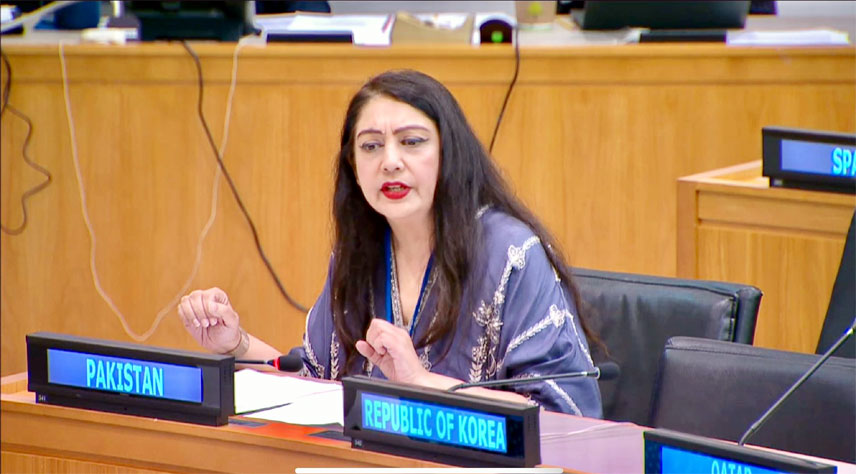Pakistan Reaffirms Global Health Commitments with NCDs Strategy
DG health tells UNGA Pakistan is facing an alarming increase in NCDs, including cancers, cardiovascular conditions, diabetes, and chronic respiratory diseases.
NEW YORK: Pakistan has placed its National Action Plan for Non-Communicable Diseases (NCDs) and Mental Health at the center of its global health commitments, unveiling it during a high-level meeting on the sidelines of the 80th United Nations General Assembly (UNGA).
Representing Pakistan, Director General Health, Professor Dr. Ayesha Isani Majeed, reaffirmed the country’s strong resolve to confront the rising burden of NCDs and to safeguard the mental well-being of its population.
Dr. Ayesha stressed that Pakistan is facing an alarming increase in NCDs, including cancers, cardiovascular conditions, diabetes, and chronic respiratory diseases. She emphasized that the newly devised action plan has been formulated to ensure a robust and coordinated response, focusing on prevention, early detection, and effective treatment at all levels of healthcare delivery.
Underscoring the gravity of the challenge, she pointed out that Pakistan has one of the highest breast cancer rates in South East Asia, with one in every nine women at risk during their lifetime.
To counter this, Pakistan has integrated breast and cervical cancer screening within primary healthcare services and has also introduced the HPV vaccine for girls aged 9 to 14 years, aiming to reduce the incidence of cervical cancer in the future.
On tobacco control, Dr. Ayesha reaffirmed that Pakistan remains a committed signatory to the WHO Framework Convention on Tobacco Control (FCTC) and has enforced some of the strictest measures in the region.
These include mandatory 70% health warnings on cigarette packs and a nationwide ban on sheesha smoking in public places. She further revealed that new legislation is being advanced to restrict the use of vapes and electronic nicotine delivery systems in public spaces, in line with Pakistan’s broader tobacco reduction strategy.
In addition to regulatory interventions, Pakistan has also employed fiscal tools to curb unhealthy consumption habits. Dr. Ayesha highlighted that the tax on sugary drinks has been raised to 40%, reflecting the government’s determination to discourage excessive sugar intake and mitigate the risks of obesity and diabetes.
At the same time, she noted that work is actively progressing on climate and health linkages, youth and community engagement, and alternative financing mechanisms to further strengthen and sustain healthcare systems.
Concluding her remarks, Dr. Ayesha reaffirmed that Pakistan is fully committed to implementing integrated, evidence-based, and sustainable approaches for the prevention and control of NCDs, alongside the promotion of mental health and well-being, both at home and in alignment with global health goals.


Comments are closed.